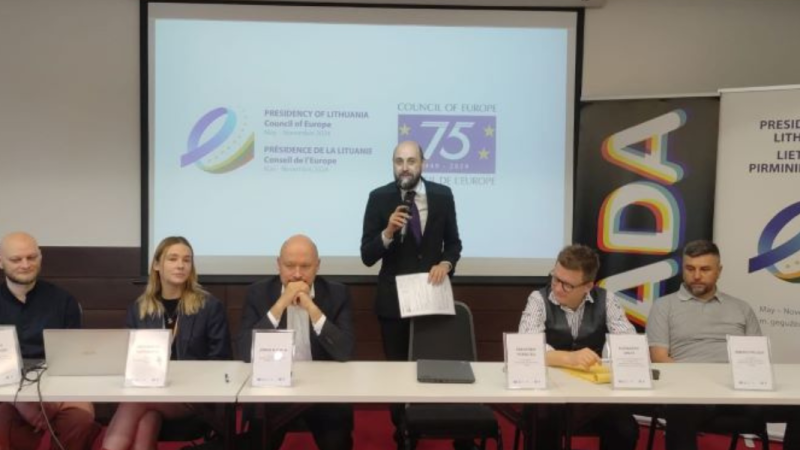State of Belarusian civil society organizations: survey results

This paper is a summary of results of an anonimous survey conducted among the leadership of civil society organizations by the human rights organization Lawtrend in cooperation with partner organizations in December 2022. We publish excerpts from the survey, with a detailed report you can find the link at the end of the material.
For the purposes of the survey, civil society organizations were determined as both institutionalized structures (various forms of non-profit legal entities, their organizational structures, simple partnerships, etc.) and informal initiatives.
108 civil society organizations took part in the survey, meanwhile 74 civil society organizations did it in full (answered all mandatory questions in the questionnaire and “reached” the last question). The analysis of the answers to questions indicates the percentage of the total number of civil society organizations that answered a particular question.
Legal Status of CSOs
49% of CSOs said that they are in the process of liquidation or liquidated in Belarus, 36% said the organization is registered outside of Belarus, 17% said the organization has not been registered in Belarus, 12% said the organization is registered as an NGO in Belarus (a public association, a foundation, an institution, a union, or an association), and 10% – the organization plans to register outside of Belarus.

56% of CSOs registered outside of Belarus indicated that the organization had been registered abroad after 2020, and 44% were registered before 2020.

97% of the CSOs with registered status abroad stated that the organization continues carrying out its activities; 3% had adjusted its mission refocusing its activities in the interests of another country (a country of relocation, Ukraine, etc.).

Areas of Activity and Target Groups of CSOs
The most common areas of activity amongst the CSO are education (62%), civil society development (48%), human rights protection (40%), culture and arts (29%), and local development and urbanism (25%). 1% found it difficult to answer the question about the main areas of their activity. It can be assumed from other answers that their activities are suspended.

Meanwhile, the main target groups of CSOs participating in the survey are society/the general public (63%), youth (45%), civil society organizations (38%), professional and creative communities (23%), and local and central government (21%). The ‘Other’ option (7%) included human rights defenders, political prisoners, teachers, cultural figures, historians, and students.

CSO Participation in Coalitions and Umbrella Structures
The majority of Belarusian CSOs work inter alia in the framework of coalition activity. 43% of the surveyed CSOs are members of Belarusian and international coalitions and umbrella structures, 23 % are not members of any coalition structures, 21 % are only of Belarusian ones, 5 % are only of international ones, and 7% failed to answer this question.

The CSOs have different levels of interaction with various actors, depending on their role in the political life of the country, the way of presenting information, its dependence on the state ideology, and financial relations with CSOs. The CSOs participating in the survey were asked to assess the level of their cooperation and interaction with national and local authorities, state-run and independent media outlets, donors, political parties and opposition structures, international institutions, and other entities. The rating was carried out on a scale of 1 to 10, where 1 means “poor or negative interaction” and 10 means “full cooperation and mutual understanding in joint activities”. Those participating in the survey were also offered an additional response option of “Neutral status/No interaction”.

Forms of the state pressure on Belarusian CSOs
Since August 2020, Belarusian CSOs have been facing constant pressure from government agencies. At the same time, the intensity of the pressure has been increasing. The CSOs noted that they most often face the following forms of the state pressure: forced liquidation (65%), discrediting CSOs and/or CSO members in the pro-government media, Telegram-channels (63%), searches in the organization`s premises and/or in residences of its leaders and members (54%), summons of members for “conversations” and interrogations (54%), persecution of members (35%), inspections by financial and/or other authorities (32%), penalties and additional tax charges (16%), and forcing self-liquidation (14%). 8% of the CSOs also faced other forms, such as forcing relocation, inability to carry out financial activities, forcing cooperation of special services, and pressure on their members` relatives in Belarus.

Main Obstacles to the CSO Activities
The main obstacles to the activities of the Belarusian CSOs are harassment, reprisals and new restrictions for their activities in Belarus, it was noted by 80% of the CSOs. 63% of the CSOs featured the relocation of members and the need to organize the CSO operating abroad as an obstacle to their activities. The following main obstacles were mentioned: liquidation and prohibition of CSOs activity (61%); loss of the communication with target groups (59%); psychological, medical problems and burn-out of staff and volunteers (56%); dependence on foreign financing (53%); blocked informational resources of the organization within Belarus (37%); reduced access to funding (34%); shortage of qualified staff (workers, volunteers) (29%); low communication between Belarusian CSOs (27%); lack of communication with the Belarusian authorities (24%); lack of communication with donors (16%); low access to legal aid (9%); and lack of access to Belarus` government bodies websites (5%).

Basic Needs of CSOs in Belarus
Material resources, including equipment and funding, were noted as the main need by 75% of the CSOs. There are visa support of an organization’s members, including those in Belarus (63%), ensuring physical safety of the members (52%), organizational development and strategic planning (48%), advanced training for members: seminars, courses, and internships (47%), and access to the dissemination of information to the audience in Belarus (45%) among the basic needs. 7% of the CSOs referred to some other needs: support of long-term institutional projects, help in embracing modern digital technologies, support of offline meetings of the organization`s members of different countries, and financial support of volunteer team activity.

A detailed report can be found at the link



